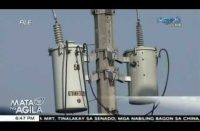Scores of holiday resorts on the Philippines’ famous white-sand island Boracay have been given two months to clean up or face closure, officials said Wednesday, after President Rodrigo Duterte warned tourists were swimming in polluted waters.
The outspoken leader last week blasted the tiny island’s hotels, restaurants and other businesses, accusing them of dumping sewage directly into the sea and turning it into a “cesspool.”
The Department of Environment and Natural Resources said a total of 300 businesses faced “evaluation” for sanitary or other offenses on the 1,000-hectare (2,470-acre) island, of which 51 have already been handed official warnings for violating environmental regulations.
Many of these businesses are accused of using the island’s drainage system to send untreated sewage into the sea, officials said.
“(The DENR) is giving them two months to comply with the law. Otherwise, we will close them,” Environment Secretary Roy Cimatu said in a statement posted on his agency’s website.
Officials will also investigate businesses that put up buildings in protected parts of the island.
Boracay is one of the country’s top tourist destinations, attracting some two million visitors each year.
It has some 500 tourism-related businesses, although most of the island’s supplies have to be shipped in from nearby ports.
Tourism Secretary Wanda Teo said the island needs a “massive clean-up,” adding that the work was “a bitter pill that we have to swallow if we (are) to collectively save and sustain Boracay.”
Local businesses said Duterte’s remarks had yet to have a serious effect on visitor numbers.
But Nenette Graf, head of industry association the Boracay Foundation, said there had been “one or two cancellations” since the issue came to light.
Local government official Rowen Aguirre conceded that inspectors had often found cases of resort violations concerning waste water discharge and expanding into “no-build” zones, but expressed optimism that the problems could be resolved.
“The term ‘cesspool’ is too strong. You just have to come here and see the situation for yourself,” he told AFP. Agence France Presse







